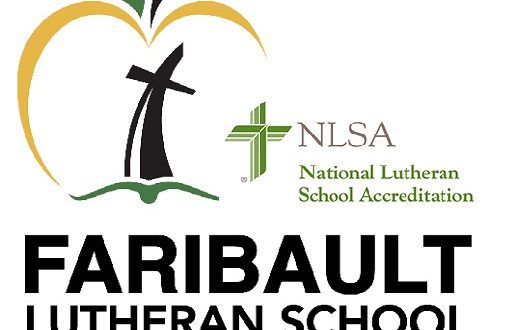On Sept 16th, 2018 FLS was recognized during the church services of our association congregations for our accreditation status through the NLSA. The completion of the NLSA, and resulting accreditation, further confirms the high standards of education and pursuit for continuous improvement amongst our faculty and staff.
What is NLSA?
National Lutheran School Accreditation (NLSA) serves as the accrediting body for Lutheran Church – Missouri Synod schools across the United States and the world. NLSA has been accrediting schools in the LCMS since 1978, and accreditation decisions have always been based upon a school’s compliance with national standards for Lutheran schools that reflect the essential qualities that are expected of Lutheran schools.
The purpose of an NLSA self-study is to evaluate the actual conditions in place that are related to essential indicators of school quality. These are evaluated and measured in seven specific standard areas. In order to become accredited in good standing with NLSA, a school must comply fully with 30 required indicators of success. Additionally, the school must evaluate itself on a scale of 1-4 (4 being the highest rating) using a variety of general indicators that quantify how it complies with standards in each accreditation area. Ratings are established by the school based upon evidence and practices that are in place at the time of the self-study. Ratings allow a school to identify and celebrate unique strengths and address concerns that need corrective actions.
As a part of the process, each school is responsible to construct a school action plan based on concerns identified in its self-study. Actions are required for all conditions that have been given a rating of 1 or 2. The actions that are planned by the school insure continuous improvement and schools are accountable to their district accreditation commission for annual progress. Upon conclusion of the self-study, an NLSA visiting team validates that the information prepared by the school accurately reflects the actual conditions that are present at the school. In a formal, two-day visit, the team examines evidence, interviews school stakeholders, visits classrooms and observes overall school practices. If the evidence presented does not sufficiently support a school rating, the visiting team has the authority to change the school’s rating in its report.
What is Evidence Based Accreditation?
Evidence Based Accreditation (EBA) is objective rather than subjective in nature. It requires that schools identify evidence and practices pertaining to each indicator. The significance of the evidence and its impact results in a high indicator rating by the school. Through this, the EBA process removes the subjective nature of what a school hopes to become and requires realistic objective evaluation of the current school and their present strengths and accomplishments.
NLSA Self Study Focus Areas
- Purpose
- Relationships
- Professional Personnel
- Student Services
- Teaching and Learning
- Facilities

